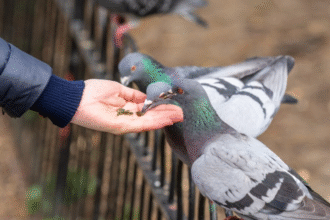Reactivity in dogs isn’t universally defined, but trainers describe it as a strong emotional response to a trigger in the environment.
The pup will lunge, bark, or growl at a stimulant that causes him to overreact. Learn tips on how to manage a reactive dog by visiting https://naturvet.com/how-to-train-manage-your-reactive-dog.
Most pet parents don’t want to attach the label “aggressive” to their canines, and, in reality, the term is not entirely accurate in this circumstance, especially if the pet isn’t known for biting or other aggressive behaviors. The suggestion is that reactive dogs can appear aggressive, but few are enticed enough to fight.
Most pups lashing out in a reactive episode are actually anxious or experiencing fear. With their outburst, they believe they can thwart a confrontation, whether with a human or another dog, or avoid an object they don’t understand.
Many dogs who become reactive while taking a walk become frustrated because they feel restricted by their leash. When running free at home, they could be totally different pups while playing with other dogs and people. When they want to do the same on a walk but can’t, they throw a tantrum.
However, it would be difficult for a pet parent to assume the dog would be less reactive if taking a walk off-leash. Instead, the pup would need to undergo proper professional training in New Jersey for reactive behavior before going off-leash.
Reactive Dog Behavior
Some dogs become reactive when walking on a leash with their pet parents. The trigger can be a number of things, such as another dog, people, an object that they don’t recognize or that is loud, or maybe their shadow in the bright sunlight.
The underlying cause is anxiety and fear more than aggression or a desire to fight. The pup is also frustrated that he doesn’t have control over what he wants to do.
If he wants to say “hello” or sniff another animal, the leash restricts his abilities, or if he wants to run from a scary sound, he can’t hide. Go here for tips on how to prevent reactive behavior.
Some pups are more skittish than others, more excitable; however, many are set to high expectations. If a canine lives on a farm where he can roam the land freely but then has to take a leash to walk along the New Jersey city streets, this will create confusion and upset for the pup.
It can be the same for a dog that lives in the suburbs with a fenced yard. Expecting the dog to accompany his pet parents to the cafe with a shop full of people and lie down on his leash while on his best behavior could be too much. These instances can result in panic and a heightened reaction.
Getting help for the canine involves reaching out to a professional, credentialed New Jersey dog trainer specializing in working with reactive dogs for off-leash training.
One, in particular, is Ray Medina; trainers like this work carefully to reduce reactivity in small, straightforward, albeit consequential steps. Here is the plan to follow when you have a reactive dog.
Reach out for professional training
The consequential training for a pup consists of small details but is relatively straightforward. Seeking the assistance of a credentialed animal behaviorist makes quick work of the improvements.
As a rule, sessions involve setting up a scenario where the pup views the trigger from a distance so there’s no reaction. This helps them remain relaxed in the situation. The trainer will reinforce a soothing environment by offering a reward, which also associates a positive reaction with the trigger.
According to some training methods, the dogs will explore their environment on an extended leash around a trigger. This allows observing while sniffing and continuing to walk without restriction.
Positive reinforcement – no punishment
Punishment is not effective when training a dog, especially when trying to navigate reactive behavior. The dog training industry is unregulated, allowing anyone to call themselves a dog trainer.
Some less experienced trainers will recommend that pet parents incorporate a shock collar to discourage unacceptable behavior.
Tools like these could quiet a dog but won’t help him feel better about the trigger. Studies show that in most situations, punishment like this can increase aggression. In the dog’s mindset, anytime he is afraid or anxious, it’s made worse by his parents hurting him.
Final Thought
The ideal professional dog training in New Jersey will work with a dog to bring out the very best version of himself. That could mean finding locations on a map where your dog is less distressed, a compromise.
You’ll both enjoy a peaceful walk. Maybe you can find a way to train your dog to walk without the leash at some point—with the professional trainer’s guidance.















